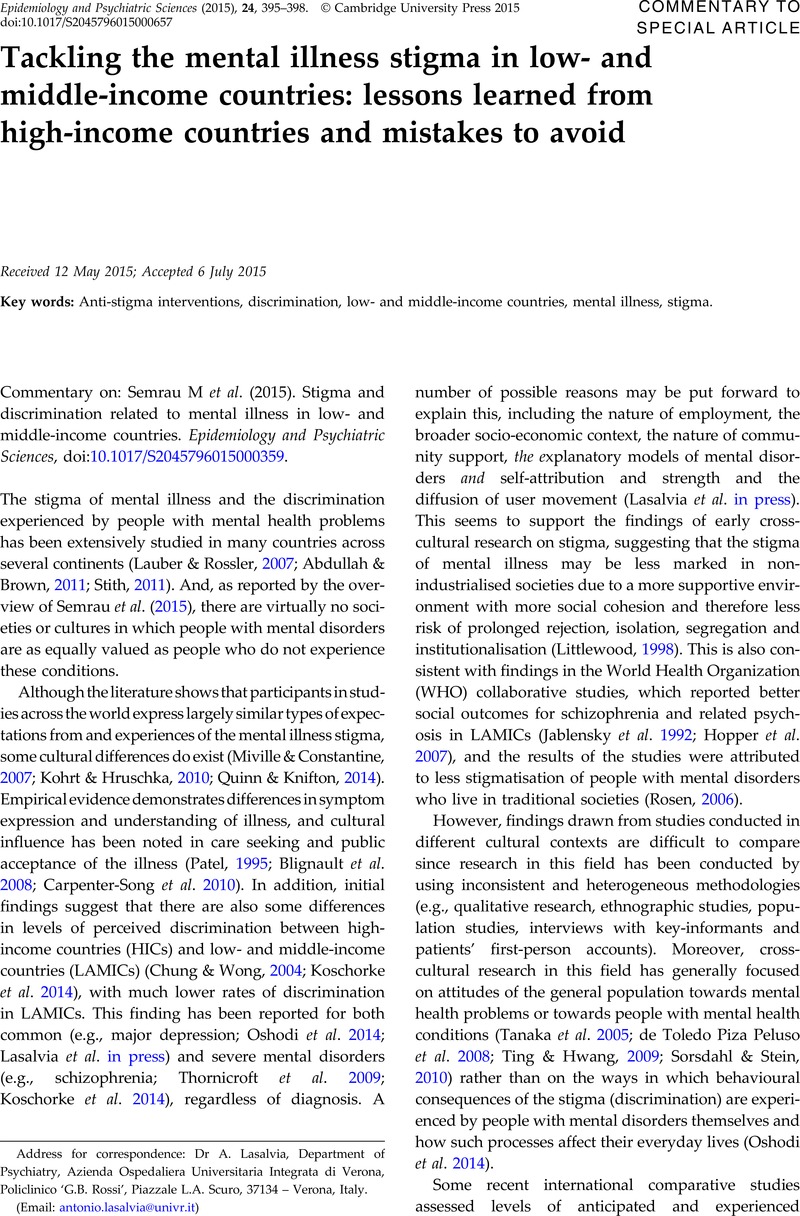Crossref Citations
This article has been cited by the following publications. This list is generated based on data provided by Crossref.
Tanaka, Chika
Tuliao, Maria Teresa Reyes
Tanaka, Eizaburo
Yamashita, Tadashi
and
Matsuo, Hiroya
2018.
A qualitative study on the stigma experienced by people with mental health problems and epilepsy in the Philippines.
BMC Psychiatry,
Vol. 18,
Issue. 1,
Rasmussen, Justin D.
Kakuhikire, Bernard
Baguma, Charles
Ashaba, Scholastic
Cooper-Vince, Christine E.
Perkins, Jessica M.
Bangsberg, David R.
Tsai, Alexander C.
and
Hanlon, Charlotte
2019.
Portrayals of mental illness, treatment, and relapse and their effects on the stigma of mental illness: Population-based, randomized survey experiment in rural Uganda.
PLOS Medicine,
Vol. 16,
Issue. 9,
p.
e1002908.
Hajizadeh, Alireza
Amini, Homayoun
Heydari, Mahdiyeh
and
Rajabi, Fatemeh
2024.
How to combat stigma surrounding mental health disorders: a scoping review of the experiences of different stakeholders.
BMC Psychiatry,
Vol. 24,
Issue. 1,



